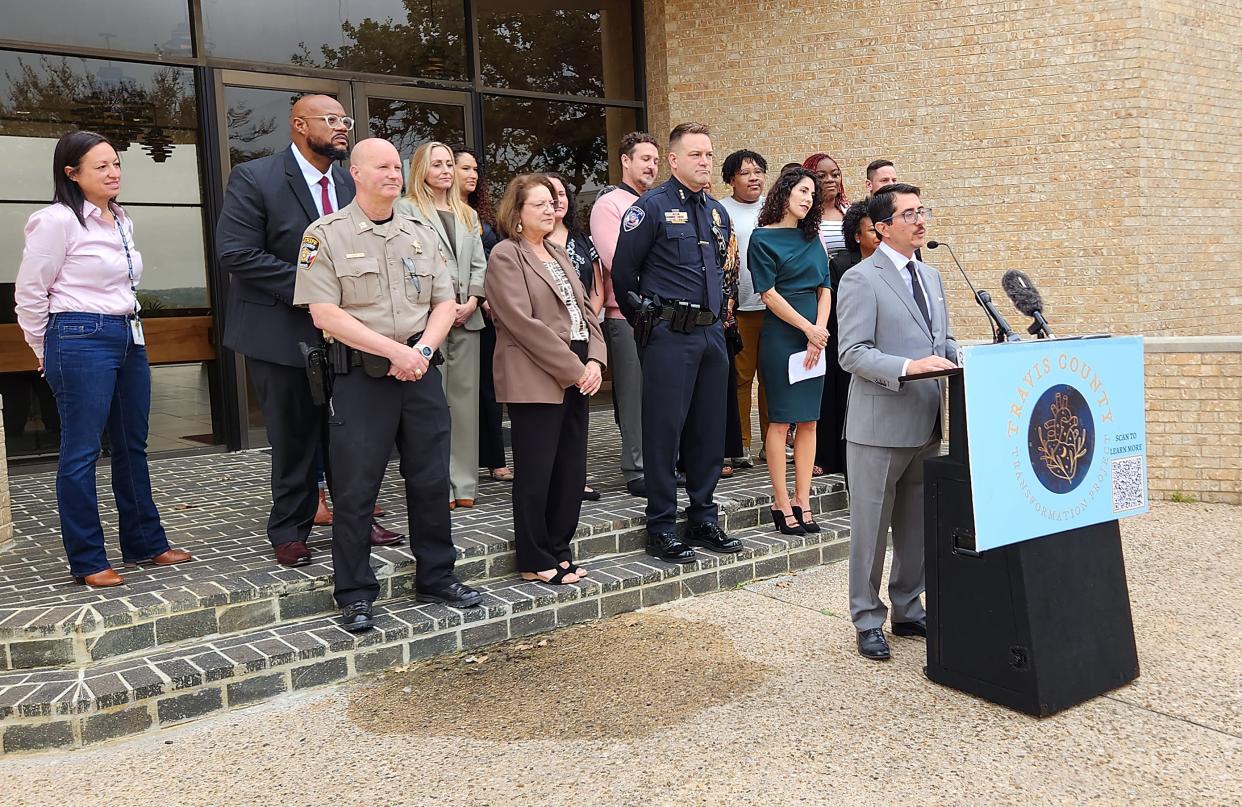Here's how Travis County aims to keep at-risk teens out of jail, decrease homicide rates

Travis County has launched a pilot program focused on keeping teens prone to violence out of jail and teaching them and their families skills to avoid violence when resolving conflict.
The hope is that giving at-risk youth counseling and other services will reduce their rates of recidivism as an adult and disrupt the cycles of violence these teens often find themselves in later in life.
"It's important that we keep (teenagers) out of a system that could potentially damage them, their family and their entire community," said Courtney Robinson, CEO of the Excellence and Advancement Foundation, which helps at-risk youth.
"We've had generations of people who've been impacted by incarceration, and so we don't need incarceration to have a safe community. We need healing and we need services to have a safe community."
The Travis County Transformation Project, spearheaded by the district attorney's office in conjunction with local advocacy organizations and law enforcement agencies, works with youth who are 15 or 16 and face the possibility of being arrested on a charge of family violence against a caretaker. The project began in June, but Travis County leaders made it public during a news conference on Wednesday.
But rather than being handcuffed and thrown in juvenile detention, these kids have a chance, if the victim (who is generally their parent or legal guardian) agrees, to go through the 10- to 14-week program.
Why is the Travis County Transformation Project needed?
Travis County District Attorney José Garza said that in the past decade, a number of homicides have happened in connection to domestic violence cases, and often, the perpetrators learned violence at a young age in their homes. The goal of this program is to end intergenerational violence, and in turn, homicide rates will decrease.
Garza said the program is already successful if it's keeping children out of juvenile detention. He said it can help about 30 families a year, and it has an operational budget of nearly half a million dollars that's being funded almost entirely by private donations.
"We believe that every family in this community can thrive," Garza said at a press conference on Wednesday. "Helping families to thrive is the right thing to do. But it's also the smart thing to do for our public safety."
Garza said about 20 teens have been referred to the program since June.
How will the project work?
The program starts with law enforcement. The Travis County sheriff's office and the Austin, Manor and Pflugerville police departments, among others, are involved in the program.
Capt. Scott Crowe of the sheriff's office said that when authorities respond to the scene of a family violence incident, they will call someone from the district attorney's office, who is on call 24/7, if a teen could be a good candidate for the program.
If the teenager and their caretakers agree to join the program, Crowe said deputies would take the teenager, not in handcuffs, to LifeWorks, where they will stay for two to three days. After an evaluation of their needs, they will begin getting services such as counseling, medication or housing.
Associates with the Amala Foundation will meet with the teens and their families to begin the restorative justice process, which is essentially teaching all parties how to begin healing and approach their conflicts without resorting to violence.
Maria Arabbo, executive director of the Amala Foundation, said the organization's approach is rooted in the practices of Indigenous cultures and is focused on teaching families the long-term skills to talk through their differences and conflicts.
"We're really trying to interrupt intergenerational violence," Arabbo said. Through this approach, "they're feeling resourced through their own self-regulation and their own ways to kind of calm and soothe themselves."
This article originally appeared on Austin American-Statesman: Here's how Travis County aims to keep at-risk teens out of jail

